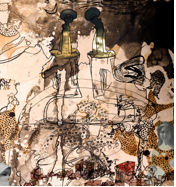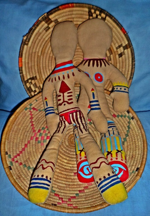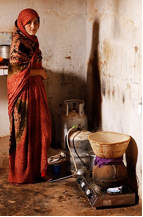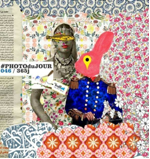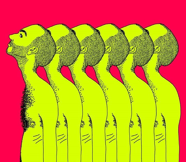The British media coverage of the 13 November attacks on Paris and its aftermath, and in particular the analyses of certain “experts”, has been problematic. In her analysis, Natalya Vince, historian of Algeria, points out the dangers of shortcutting historical facts in favour of easy and inaccurate connections, and notably the misuse of the Algerian war to understand contemporary France.
The right-wing media reaction to the horrific attacks of 13 November in Paris has been predictable. Muslim populations living in the West have been presented as an enemy within and the wave of Syrian refugees desperately seeking to enter Europe depicted as a cynical cover for the infiltration of Islamist terrorists.
Such discourses will have devastating effects for Syrian refugees and Muslims living in Europe and North America. Subsequent declarations by more than half of the USA’s governors that Syrian refugees were not welcome in their states, the growing number of reports of acts of violence and hostility towards people who “look Muslim” and the vandalising of mosques clearly demonstrate this. However, as arguments go, conspiratorial claims about “Fifth columns” and “Trojan horses” are also very easy to dismiss. It is fairly obvious that they are based on crude generalisations, seeking to instrumentalise the outpouring of outrage and sympathy following the 13 November attacks to advance pre-existing racist, xenophobic and Islamophobic agendas.
More troubling about the reaction to the attacks, notably in the British media, has been the “liberal” reading of the long-term causes of the rise of “homegrown” terrorists. In these analyses, the actions of a handful of Islamists – some of whom are the children of immigrants from Muslim majority countries, others converts to Islam as young adults – are, of course, not justified, but instead are explained as the result of a combination of factors in which the role, and responsibility, of the French state loom large.
When carefully contextualised, many of these factors matter: the socio-economic, political, geographical and cultural exclusion of many post-colonial immigrants and their children is evoked, as is France (and the West’s) cynical and two-faced foreign policy in North Africa and the Middle East – propping up dictators when it suits their interests, bringing war to Afghanistan and Libya and bombing Syria when it doesn’t, claiming to act in the name of their “values” but remaining political and economic best friends Saudi Arabia and Qatar.
Yet a number of commentators have strayed far from careful contextualisation and have thrown into this mix the legacy of the Algerian War of Independence. On 16 November 2015, The Independent carried the headline “France’s unresolved Algerian war sheds light on the Paris attack.” Robert Fisk, the newspaper’s award-winning Middle East correspondent went on to declare that “The French-Algerian identity of one of the attackers demonstrates how France’s savage 1956-62 [sic. – the war began in 1954] war in Algeria continues to infect today’s atrocities.” This claim is based on the information that one of the French attackers, Omar Ismail Mostefai, was of Algerian origin. Fisk goes on to point out that the killers in the Charlie Hebdo attacks in January, Said and Cherif Kouachi, were also of Algerian origin: “They came from the five million-plus Algerian community in France, for many of whom the Algerian war never ended, who live today in the slums of Saint-Denis and other Algerian banlieues of Paris.” The equation is neat: violence of Algerian war + socio-economic exclusion = terrorism.
Yet this sum doesn’t add up. Fisk never explains exactly how this violence, or how this memory of violence, was transmitted to young men born more than two decades after the end of the Algerian War. When he refers to Mostefai’s “French-Algerian identity” this is not a reference to how Mostefai saw himself and his place in the in the world – we may never have that information. “Identity” is simply being used here to indicate the passports of his parents. Who knows what “Algeria” or “Algerian history” meant to him or what role it played – or not – in his decision to participate in an attack which killed at least 129 people. In the case of the Kouachi brothers, the transmission of Fisk’s “unresolved Algerian war” is even more problematic as much of their formative years were spent in state care. If the Algerian War was important in shaping their attitudes – and there is no evidence that it was – this was a history which they accessed in repackaged form at a later date rather than being transmitted through family memory.
The previous day, on BBC 4’s flagship radio programme The World This Weekend (the interview is 22:08 minutes in), Professor Andrew Hussey – the BBC and The Guardian’s go-to expert for all things French and Arab/Algerian/Muslim – made a similar argument:
“It’s no accident that the Algerian identity, the Franco-Algerian identity, has been part of this. I think it’s the kind of thing that the police are very slow to release because it’s an explosive fact. And why it is so explosive is obviously because of the recent history of the 1990s, the Algerian civil war, and of the course, the Algerian of Independence in the 1950s and 1960s. And I think what happens is that there are ancestral memories of all of that which are being played out in Paris. No accident as well that one of the cafés was an Algerian café run by Berbers from the Kabyle [sic.]”
Again, how exactly were these “ancestral memories” from 1954-62 transmitted to a 29-year-old man, when Hussey himself states that he thinks Franco-Algerians “don’t really know a lot about their own history”? We can only assume that for both Fisk and Hussey these “ancestral memories” imply some kind of genetic transmission: the very fact of having Algerian parents inevitably makes you the carrier of a memory of colonial violence and humiliation, which at some point will explode into bloody vengeance. Reducing whole peoples to perceived cultural characteristics which remain fixed throughout time is blatant essentialism. Implying that all Franco-Algerians carry around with them a sense of unfinished history which can only be assuaged through blowing themselves up or shooting innocent bystanders is insulting and stigmatising. It also requires a logical leap which reveals more about the fantasies of our “experts” than about the views and actions of the heterogeneous group(s) of people who might come under the Franco-Algerian label.
Equally essentialising is Hussey’s reference to the “café run by Berbers from the Kabyle [sic.]”, who he describes as “a community that is quite open about selling alcohol”, and goes on to suggest that “the Algerian fundamentalists are sending a message within that community, ‘do not collaborate with the enemy’”. This reproduces a familiar stereotype, with origins in the colonial conquest of the late nineteenth century – that inhabitants of the region of Kabylie are ‘naturally’ more ‘open’ to ‘Western civilisation’. This characterisation has been expertly deconstructed by both Patricia Lorcin, and, more recently Yassine Temlali – both of whom are expertly ignored by Hussey. The reason he gives for the attackers’ choice of target is pure speculation, and the assignation of collective attitudes towards alcohol is underpinned by little evidence. Nevertheless, it fits into a dominant narrative of “they hate us because they hate our freedom”. Note too, that for Hussey the attackers have now also all been homogenised into “Algerian fundamentalists” – despite the fact that the reported mastermind of the attacks, Abdelhamid Abaaoud was Belgian-Moroccan.[1]
These “historical explanations” and “contextualisations” have also permeated the BBC website’s standard news reports. In an article by Cagil Kasapoglu on 18 November, provocatively – and misleadingly – entitled “France’s banlieue Saint Denis unmoved by Paris attacks”, Saint Denis was described as a “multi-ethnic banlieue [in which] the majority [“the majority” was later changed to “much”] of the population has ‘sans-papier’ status” and “there are no bistros”. The statistic on undocumented migrants is highly questionable, the proclaimed absence of bistros is baffling to anyone who has ever set foot in Saint Denis and the assertion that the residents of the working class suburb are “unmoved” by the Paris attacks is a deliberate misrepresentation of what her own interviewees tell her. But what interests us particularly here is the (mis)use of history. Kasapoglu’s quotes Nilgul, described as a “29 year old ethnic Turkish woman born in Saint Denis”:
“Much of the anger here dates back to France’s war in Algeria from 1954-62, in which at least 60,000 Algerian civilian died, she suggests. ‘Their problem is not Paris. The reason they’re being radicalised might be their desire to take revenge for their parents.’”
No evidence is presented to support this fantasy of the attacks as a form of revenge, and this desire for revenge is not something which the interviewee can attest to personally – she is making inferences about the psychological burden of someone’s else’s history.
This supposed “historical background” to the 13 November attacks is not only ahistorical, it is anti-history. It at best ignores, and at worst undermines, the serious work that has been done in France and around the world in recent years by academics and associations to trace the political, economic, social and cultural legacies of colonial rule in contemporary France and in former French colonies, exploring both continuities and change across the colonial and post-colonial periods.
These recent analyses by commentators for the BBC, The Independent and The Guardian are all the more troubling precisely because they are presented as expert knowledge, rather than rabid ranting. They are all the more deceptively authoritative because snippets of factual information are embedded within them: Fisk, for example, points out that contrary to widely made claims that the 13 November attacks had provoked the highest death toll in France since the Second World War, on 17 October 1961, up to 200 Algerian peacefully demonstrating in Paris in favour of independence were killed by the French police. But although this reference to the past might be factual, his frame of “unfinished war” to read the present is highly questionable, deeply problematic and not far off a rabid rant.
The legacy of the Algerian War of Independence in contemporary France is complex and multifaceted. But rather than acknowledging this, and the limits of their knowledge (and indeed knowledge in the field more broadly), our “experts” project onto their subjects what they imagine that they would do if they were of Algerian origin and living in France today. The result is a neo-oriental fantasy of avenging the ancestral sin of colonialism, in which “the Algerian” remains forever outside history. Under the veneer of “understanding” the “oppressed” and the “outsider”, sweeping generalisations about “Franco-Algerians” and insidious juxtapositions of past and present reveal profoundly reactionary attitudes.
[1] This vision of ‘France’ as embroiled in an endless war against is ‘Algerians/Arabs/Muslims’ (the terms are never clearly defined) is something of Hussey’s stock-in-trade – see his 2014 book The French Intifada: The Long War between France and its Arabs (London: Granta) – skilfully critiqued by Arthur Asseraf: http://www.jadaliyya.com/pages/index/17910/the-black-box-of-french-history
This text is co-published with the blog Textures du temps, run by Dr Malika Rahal of the CNRS- IHTP.
http://texturesdutemps.

